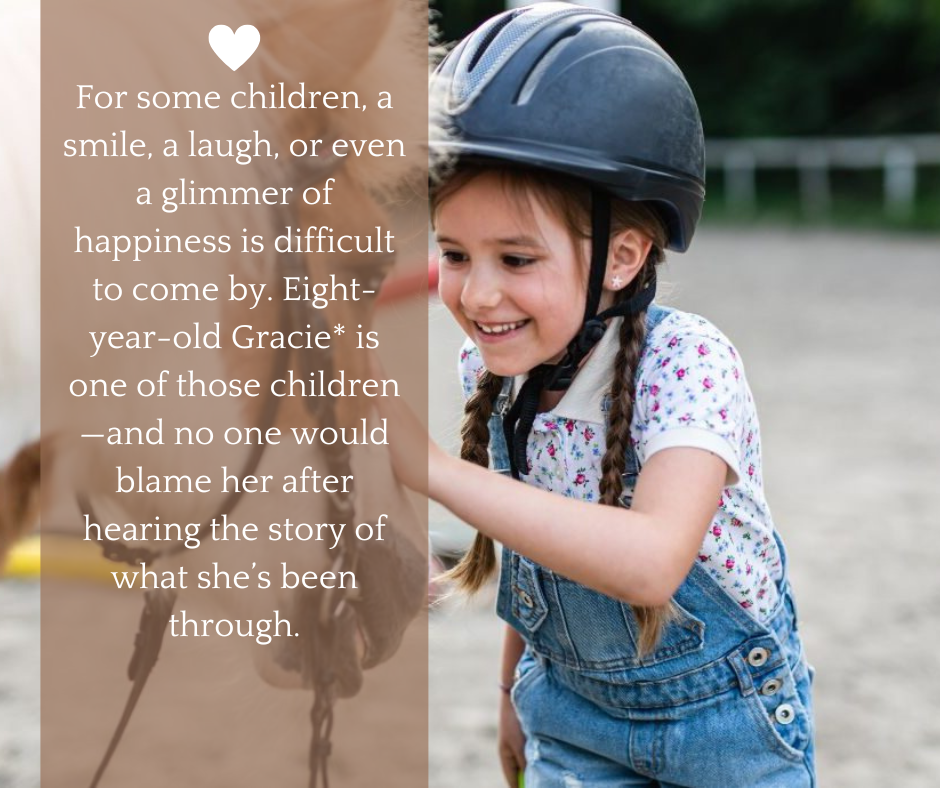Hope In Bloom: Trauma Informed Care helps children Thrive
Trauma Informed Care Helps Children Thrive
![Hope in Bloom: How Trauma-Informed Care Helps Children Thrive
March is a time of renewal—a season where the first blooms push through the soil after the long winter. Just as flowers need the right environment to grow, children who have experienced trauma need care, patience, and stability to heal.
At Prairie Plains CASA, we believe that hope can bloom even in the hardest circumstances, and that’s why trauma-informed care is at the heart of our advocacy.
What is Trauma-Informed Care?
Children in foster care have often faced instability, neglect, or abuse—experiences that deeply impact their emotional and mental well-being. Trauma-informed care means recognizing the effects of these experiences and responding in a way that promotes healing, trust, and empowerment rather than unintentionally re-traumatizing a child.
Trauma-informed care is built on five key principles:
1. Safety – Ensuring children feel physically and emotionally secure.
2. Trustworthiness & Transparency– Building relationships with honesty and consistency.
3. Peer Support – Connecting children with safe, supportive adults.
4. Collaboration & Empowerment – Giving children a voice in their own future.
5. Cultural & Historical Awareness – Understanding how past experiences shape their present needs.
As CASA volunteers, we act as consistent, caring adults who advocate for a child's best interests in the courtroom, at school, and in their foster placement.
Why Trauma-Informed Care Matters for CASA Advocates
When children have experienced trauma, they may struggle with:
- Difficulty trusting adults
- Challenges in school
- Emotional outbursts or withdrawal
- Fear of change
By using trauma-informed practices, CASA volunteers help children feel heard, valued, and supported. This can look like:
- Advocating for stable placements that minimize disruptions.
- Ensuring children have access to therapy, education support, and safe environments.
- Speaking up for court decisions that prioritize the child’s long-term well-being.
Every child deserves a future where they can thrive—not just survive.**
Hope in Bloom: How You Can Help
This March, as part of our Hope in Bloom giving campaign, we invite you to help plant the seeds of hope for children in foster care.
Your donation supports:
🌸 Training CASA volunteers to use trauma-informed advocacy.
🌸 Providing comfort items like books, journals, and sensory tools for children experiencing stress.
🌸 Creating safe spaces for children to meet with their CASA advocate and talk openly.
Stay Connected & Make a Difference
🌿 Sign up for our newsletter to stay informed about how Prairie Plains CASA is advocating for children and how you can get involved: [Insert newsletter sign-up link]
🌿 Follow us on Facebook for real-time updates, volunteer stories, and ways to support our mission: [Insert Facebook handle]
🌼 Give today and help hope bloom. 🌼
[**Donate Now**] (Insert donation link)](https://lirp.cdn-website.com/f8b7f024/dms3rep/multi/opt/March+Facebook+post+-1920w.png)
March is a time of renewal—a season where the first blooms push through the soil after the long winter. Just as flowers need the right environment to grow, children who have experienced trauma need care, patience, and stability to heal.
At Prairie Plains CASA, we believe that hope can bloom even in the hardest circumstances, and that’s why trauma-informed care is at the heart of our advocacy.
What is Trauma-Informed Care?
Children in foster care have often faced instability, neglect, or abuse—experiences that deeply impact their emotional and mental well-being. Trauma-informed care means recognizing the effects of these experiences and responding in a way that promotes healing, trust, and empowerment rather than unintentionally re-traumatizing a child.
Trauma-informed care is built on five key principles:
- Safety – Ensuring children feel physically and emotionally secure.
- Trustworthiness & Transparency – Building relationships with honesty and consistency.
- Peer Support – Connecting children with safe, supportive adults.
- Collaboration & Empowerment – Giving children a voice in their own future.
- Cultural & Historical Awareness – Understanding how past experiences shape their present needs.
As CASA volunteers, we act as consistent, caring adults who advocate for a child's best interest in the courtroom, at school, and in their foster placement.
Why Trauma-Informed Care Matters for CASA Advocates
When children have experienced trauma, they may struggle with:
- Difficulty trusting adults
- Challenges in school
- Emotional outbursts or withdrawal
- Fear of change
By using trauma-informed practices, CASA volunteers help children feel heard, valued, and supported. This can look like:
- Advocating for stable placements that minimize disruptions.
- Ensuring children have access to therapy, education support, and safe environments.
- Speaking up for court decisions that prioritize the child’s long-term well-being.
Every child deserves a future where they can thrive—not just survive.
Hope in Bloom: How You Can Help
This March, as part of our Hope in Bloom giving campaign, we invite you to help plant the seeds of hope for children in foster care.
Your donation supports:
🌸
Training CASA volunteers to use trauma-informed advocacy.
🌸
Providing comfort items like books, journals, and sensory tools for children experiencing stress.
🌸
Creating safe spaces for children to meet with their CASA advocate and talk openly.
Stay Connected & Make a Difference
🌿 Sign up for our newsletter to stay informed about how Prairie Plains CASA is advocating for children and how you can get involved: [Insert newsletter sign-up link]
🌿 Follow us on Facebook for real-time updates, volunteer stories, and ways to support our mission: [Insert Facebook handle]
🌼 Give today and help hope bloom. 🌼
Donate Now https://www.zeffy.com/fundraising/donate-to-make-a-difference-7176
Trauma Informed Care Helps Children Thrive


